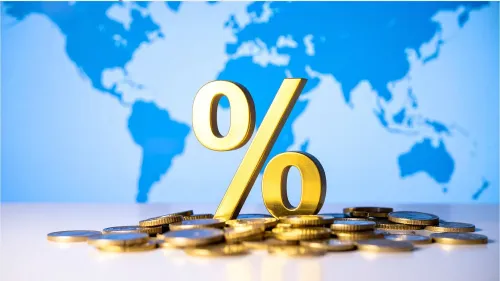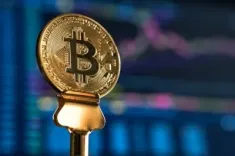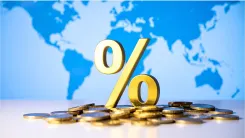Could Seoul's Stock Market Decline Signal an AI Bubble?

Synopsis
Key Takeaways
- South Korean stocks fell sharply amid AI bubble fears.
- The KOSPI index dropped by 3.79% on Friday.
- The local currency hit a seven-month low against the U.S. dollar.
- Foreign investors sold a net of 2.83 trillion won in shares.
- Market volatility remains as investors await key economic data.
Seoul, Nov 21 (NationPress) South Korean equities faced a steep decline on Friday, driven by resurfaced worries regarding an artificial intelligence (AI) bubble that significantly impacted major tech stocks. The nation's currency dropped to its lowest point in seven months against the U.S. dollar, largely due to substantial foreign selling in the stock market.
The benchmark Korea Composite Stock Price Index (KOSPI) fell by 151.59 points, or 3.79 percent, concluding at 3,853.26. Trading volume was moderate, with 307.95 million shares traded, amounting to 14.02 trillion won (approximately US$9.5 billion), and decliners outnumbering gainers by a ratio of 718 to 177, as reported by Yonhap news agency.
Foreign investors offloaded a net of 2.83 trillion won in shares, while retail and institutional investors purchased a net of 2.29 trillion won and 495.46 billion won in shares, respectively.
The index opened lower, reflecting the losses from Wall Street the previous day, and continued its downward trend as investors expressed caution over the valuations of AI-related stocks and their aggressive investment strategies.
Moreover, market sentiment was also influenced by the Federal Reserve's monetary policy, as expectations for further rate cuts diminished.
“The market has given back its gains following the surprise earnings report from Nvidia. After recent sharp increases, volatility seems to have continued,” stated Han Ji-young, a researcher at Kiwoom Securities.
“However, there is still considerable potential for sentiment to shift based on forthcoming key economic indicators and additional developments in the AI sector,” the analyst added.
Technology stocks experienced a downturn following a prior rally.
Market leader Samsung Electronics dropped 5.77 percent to 94,800 won, while chipmaker SK hynix saw an 8.76 percent plunge to 521,000 won.
Leading battery manufacturer LG Energy Solution decreased by 3.51 percent to 425,500 won, and LG Chem fell 5.53 percent to 367,000 won.
Nuclear power plant builder Doosan Enerbility declined by 5.92 percent to 73,100 won, and defense giant Hanwha Aerospace lost 5.13 percent to 869,000 won.
Leading shipbuilder HD Hyundai Heavy dropped by 4.8 percent to 555,000 won, while rival Hanwha Ocean fell by 4.16 percent to 119,800 won. The top steelmaker POSCO reduced by 3.42 percent to 310,500 won.
Automakers had mixed results, with top car manufacturer Hyundai Motor retreating 0.95 percent to 259,500 won, whereas its affiliate Kia climbed 0.53 percent to 114,000 won.
The prominent financial group KB Financial fell 0.58 percent to 120,500 won, while internet portal operator Naver surged 2.14 percent to 262,500 won.
As of 3:30 p.m., the local currency was rated at 1,475.6 won against the dollar, marking a decline of 7.7 won from the previous day.
This represents the weakest level since April 9, when it closed at 1,484.1 won. The April 9 figure was the lowest since March 12, 2009, when the won finished at 1,496.5 amid the global financial crisis.









